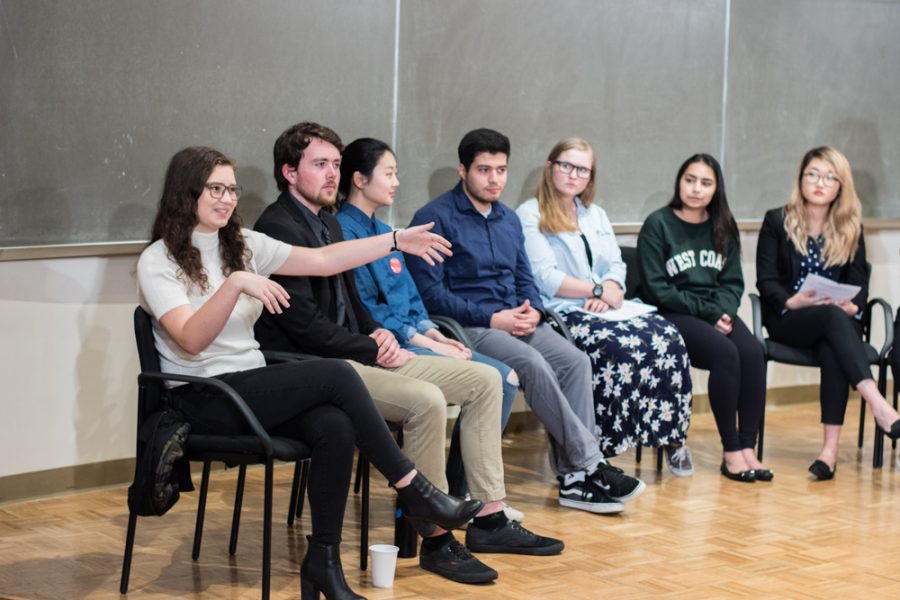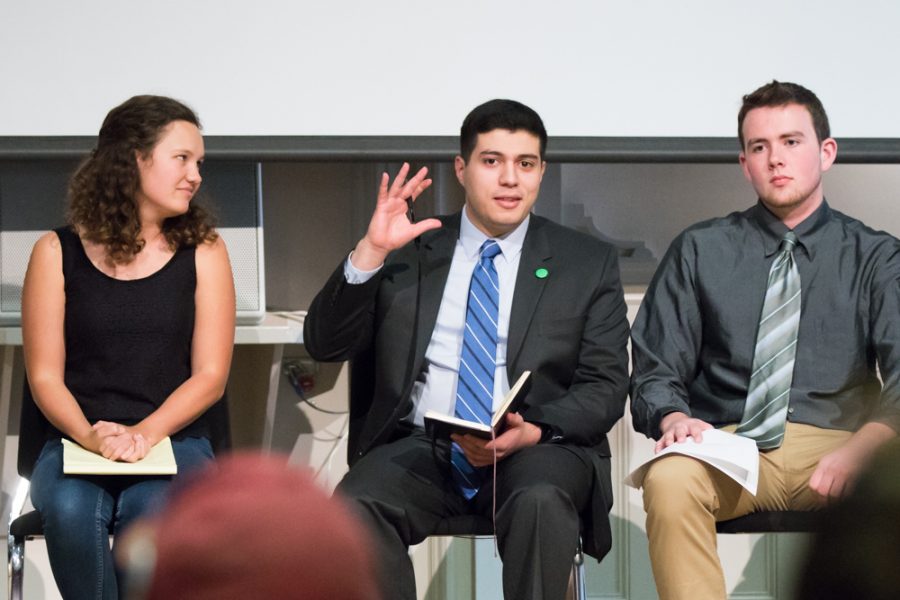ASWC Senate unanimously passed “A Resolution Advocating for Change to Whitman’s Sexual Misconduct Policy” last Sunday, Feb. 1. What would the Sexual Misconduct Policy look like if it was changed how ASWC wants?
Jurisdiction
- The Sexual Misconduct Policy is currently part of the Faculty Code, and amendments must go through the Faculty Senate. ASWC wants jurisdiction to be handed over to the administration so that revisions can be made more quickly.
Language
- The definition of incapacitated would be expanded to cover a variety of characteristics and clearly align with the definition taught by the Green Dot program.
- The definition of sexual assault would include being forced to penetrate an orifice, so that it covers assaults against male or transgender survivors of sexual assault.
- Unwanted exposure to sexual fluids would be added as a form of sexual assault.
- Gender-neutral pronouns would be used in the policy.
Title IX investigators
- Every sexual misconduct case would be conducted by a team of at least two investigators.
- The administration and Title IX investigators would be cognizant of their language to avoid victim blaming or heteronormative gender biases.
- Victims of sexual assault would not be asked what they were wearing the night of the assault. Unless it is explicitly stated, this is solely intended to corroborate witness testimony.
Transparency
- Any participant in the investigation would be able to request a recording of any statement they submitted for the investigation.
- The complainant and respondent in an investigation would be given the opportunity to verify transcript of their own investigative interviews.
- If the complainant or respondent found issue with the transcript, the quote could be changed if there were factually inaccurate information, the investigator lacked a recording to verify the transcript or the transcript left out part of the testimony.
Third-party involvement
- Whitman College would adopt the Project Callisto reporting system. Survivors would be able to record evidence with Project Callisto, an independent reporting process, at any time. They could then later decide whether to submit the report to the college and launch an investigation.
- Sexual assault medical forensic examination kits would be examined and interpreted only by third-party medical professionals not associated with the college.
Appeals
- The complainant or respondent could appeal a decision or “responsibility” or “no finding.” As the policy currently stands, there is no appeals process. Only the sanctions handed down in the case of a verdict of “responsibility” may be appealed.
- The president of Whitman College would decide appeals. The president’s decision would be final.
Academic support
- Both the complainant and respondent in sexual misconduct investigations would be given academic support and the option of postponing exams while the investigation is in progress or within two weeks of a decision being made on the case.








